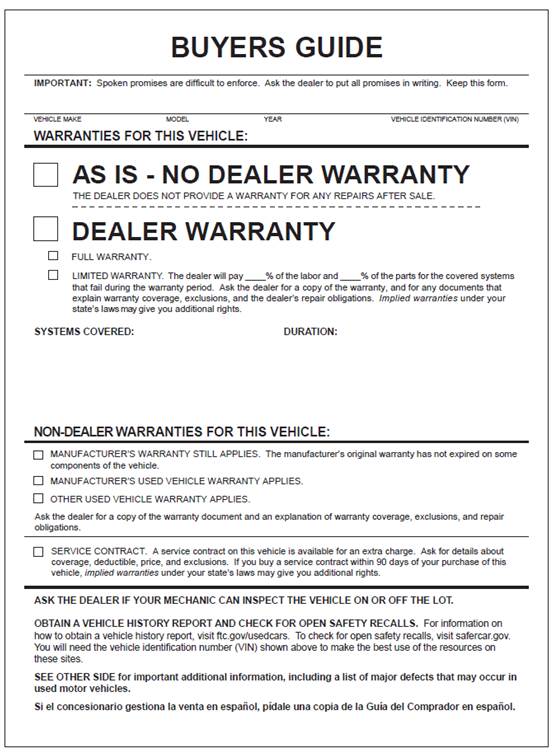 |
| Photo by Robert Couse-Baker |
My car failed DEQ. Now what?
Many Oregonians buy used cars and find out it will not pass
DEQ. Frequently, these same buyers ask “is it illegal to sell a car that won’t
pass DEQ?” The quick answer is yes, it is illegal.
Legal requirement
If a dealer sells a used car to someone who lives in a metro
area that requires DEQ testing, the dealer must ensure that the vehicle can
pass the DEQ test at the time of sale, unless the dealer first discloses that
the car cannot pass. Typically what happens is a consumer buys the car, then a
few days down the road the check engine light comes on. When the consumer takes
the car in for its DEQ test, it will fail. According to the Oregon Department
of Environmental Quality, if a check engine light is illuminated on your
dashboard, your car will not pass the DEQ test.
Why did the Check Engine light come on after I bought my car?
A check engine light can come on for a variety of reasons,
but they all relate to something needing attention with a car. If a dealer has
a car in his inventory that has a check engine light on, he can simply reset
the light without fixing the problem. This will keep the light off until the
car completes a drive cycle. The amount of time needed for the drive cycle to
complete will vary from car to car, but it is usually long enough for a dealer
to sell the car. Frequently these are problems with emission sensors or faulty
catalytic convertors, which will require repairs. This practice is illegal under Oregon’s
Unlawful Trade Practices Act.
Is it illegal for a dealer to sell a car without a catalytic
converter?
Many used cars are sold with aftermarket parts installed or
with modified exhaust systems. This might include a straight pipe, high
performance mufflers, or other equipment intended to increase the car’s
performance. If the dealer does not disclose that these modifications will
cause the car to fail DEQ, that is illegal. It is illegal because a car with
faulty emission equipment will not pass DEQ.
What do I do?
It is illegal for a car dealer to sell a car in Oregon that
cannot pass its DEQ test to a consumer who lives in a DEQ county. If you just
purchased a used car and it has failed its DEQ test or the check engine light
has recently turned on, please call our office at 503-383-1496 for a free
consultation to see if we can help you with your problems.

